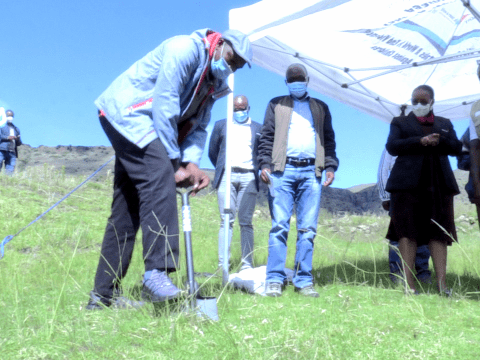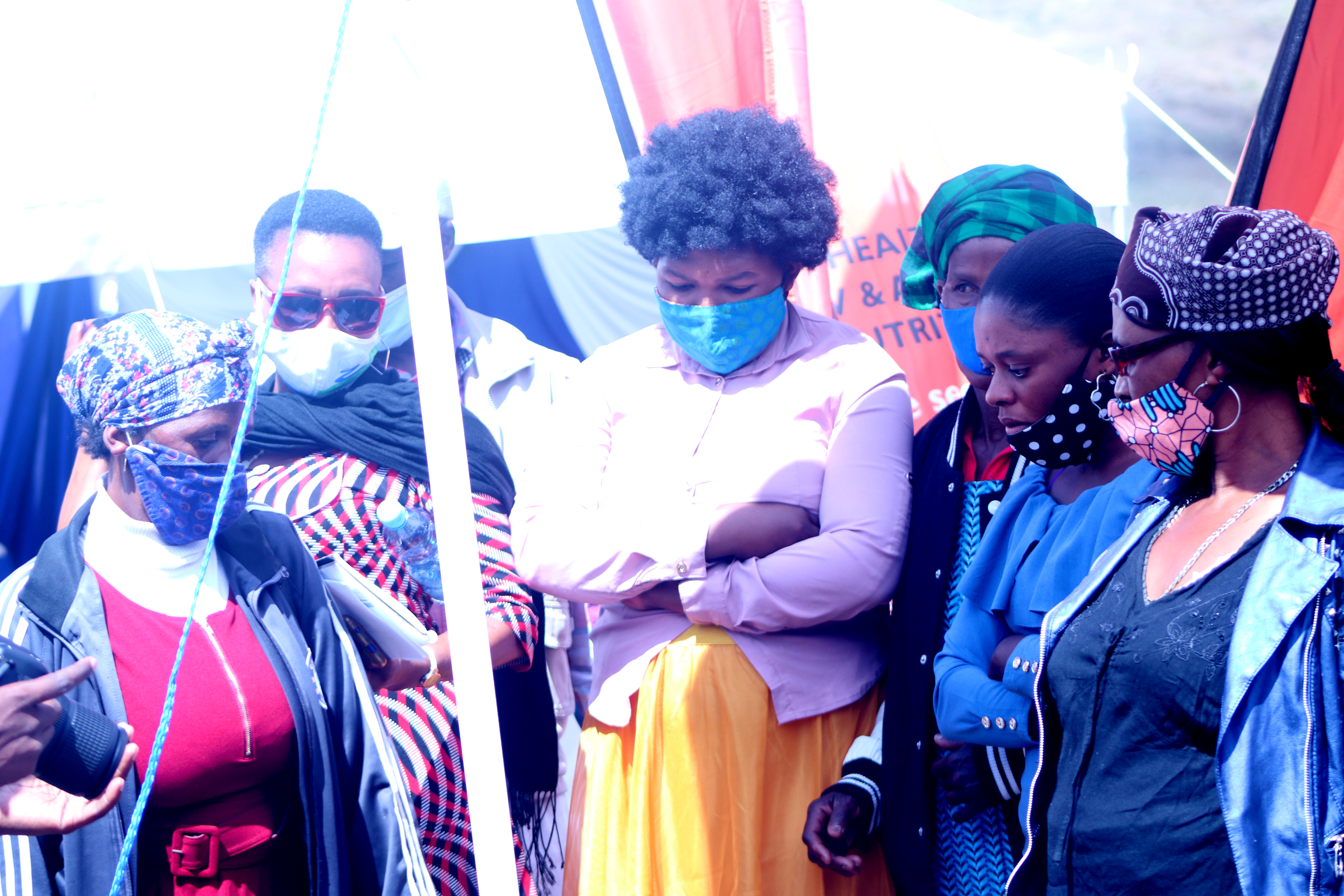World Water Day concludes with provision of water in Ha Phalana

World Vision concluded its World Water Day 2021 activities with a sod turning activity towards the provision of water for communities living in the areas surrounding Ha Phalana, within World Vision's Phamong Area Programme in the district of Mohale’s Hoek.
The sod turning event was attended by World Vision's partners in Lesotho, officials including the Minister of Water, civil society, and international organisations concerned with communities’ access to clean water, sanitation and hygiene (WASH).
Community Water Committee (CWC) members were ready to share their challenges: “Our water challenge here at Makausi and Ha Phalana is that the water pumping machine planted at one of the water sources is not reliable. The water pump is solar powered, this poses a challenge during cloudy seasons,” said one of the CWC members, 'Maeketsang Nokudema (39).
“This was the only water source available for Makausi and Ha Phalana communities. It means that our children were forced to travel at awkward hours for collecting water, exposing them to abuse. The journey takes about an hour to and from the water source”, Nokudema added.

Phalana community still conducts some of its affairs in antiquated ways. The men spend most of their times either tending their herd of animals or in the fields taking care of their crop. This leaves the responsibility of collecting water for domestic use to women and children.
Speaking at the sod turning, World Vision Lesotho National Director – James Chifwelu said water and sanitation are all important to World Vision because they are life-saving, especially to the most vulnerable children and their families.
If you look at the current situation where children have to travel longer distances to fetch water, it is dangerous that can lead to child protection issues. Parents are similarly not able to meet the hygiene needs of their children,
Chifwelu remarked.
World Vision plans to establish about 26 water systems throughout the country in communities covered by its Area Programmes, where the WASH technical work is currently being implemented. These will be complimented by the construction of eight boreholes.
“We hope that over 1,000 children will benefit from the establishment of this water source at the cost of approximately USD 68,700,” Chifwelu said, highlighting that the primary school in the area will benefit greatly from the construction of the water source.
The Minister of Water, Nkaku Kabi, encouraged the constructors who have been awarded the tender for the construction of the water system at Ha Phalana, to ensure the proper completion of the water system for the benefit of children, but also to prioritise the communities at Ha Phalana in the event they need more hands in the construction.